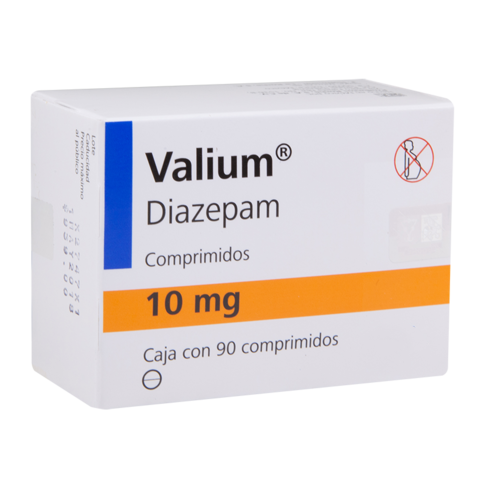Valium (Diazepam)
In the modern rhythm of life, it is difficult to keep mental health normal, so neurotic disorders begin to occur more and more every year. It is sometimes very difficult or even impossible to overcome such a condition on your own. That is why antidepressants and other psychotropic drugs, such as Valium (Diazepam), were invented.
Valium (Diazepam) may be prescribed in the following situations:
- In the presence of neurosis-like disorders and neuroses, such as obsessive-compulsive disorders, anxiety neurosis, panic attacks, pathological conditions against the background of psycho-emotional stress, phobias, anxiety syndrome, prolonged insomnia.
- As a component of general therapy in the treatment of mental illness (psychopathy, schizophrenia, reactive psychosis, paranoid state, and so on).
- For the treatment of alcohol or drug withdrawal, alcoholic delirium.
- To eliminate epileptic and epileptoid seizures.
- As a component of general therapy in the treatment of angina pectoris, hypertension, heart attack, and skin diseases accompanied by skin sensitivity and itching.
- To increase the rate of falling asleep and improve the quality of sleep.
In anesthesiology, Valium can also be used. The action of the drug will help reduce the patient's feeling of tension and fear of a future operation, which will help reduce the dose of anesthetic.
The tool can be prescribed for use and children who have behavioral disorders in combination with excessive activity, emotional stress, increased aggression, sleep problems, the presence of fears.
Buy Valium (Diazepam) Online Without Prescription
|
|
Contraindications for Use
Instruction for the drug categorically prohibits its use in such cases:
- acute diseases of the cardiovascular and excretory systems;
- glaucoma;
- sleep apnea syndrome;
- hypercapnia;
- spinal ataxia;
- the patient's suicidal tendencies;
- pregnancy and lactation;
- the presence of alcohol or drug addiction;
- individual intolerance to one or more components of the drug;
- under 6 months of age.
In addition, the drug should not be taken without a doctor's prescription.
Mode of Application
Valium tablets are intended for oral administration, and injections are for intramuscular or intravenous administration. The doctor prescribes the required dose of the drug individually for each patient. For the correct calculation, the age of the patient, the nature of the course of the disease, the characteristics of the organism, special indications, and so on are taken into account. In this case, the course of treatment begins with the minimum required dose, which, if necessary, can gradually increase in the future.
Therapy by injection should last no more than 3-5 days, then treatment is continued with the help of Valium tablets. The general course can be 2-3 months, after which it is necessary to take a break for a period of 3 weeks to 1 month.
During treatment with Valium, the use of alcohol is prohibited.
Side Effects and Overdose
The description of the Valium (Diazepam) indicates that it is generally well tolerated. But for some patients, the treatment may result in a staggering gait, lethargy, and drowsiness.
In more complex (but also rarer) cases, manifestations of photophobia (hypersensitivity to light), allergic reactions, impaired hematopoiesis, cases of impotence, menstrual irregularities, and headaches are possible.
In the event of an abrupt discontinuation of the drug, the so-called ?withdrawal syndrome? occurs, which is typical for the sudden withdrawal of all narcotic drugs. One should expect unmotivated anxiety (the patient himself does not know where he got this feeling from), hostility to close and distant circles of communication. Often there are convulsions, depression, agitation, insomnia.
Alcohol, anticonvulsants, antipsychotics, and hypnotics increase their effect when combined with the specified drug. Combining Valium with alcohol is life-threatening!
An incorrectly selected dose or the presence of individual intolerance to the drug can provoke the appearance of side effects that will manifest themselves in the form of:
- weakness, lethargy, fatigue;
- dizziness, confusion, disorientation in space, decreased concentration;
- memory impairment, tearfulness, emotional lability, euphoria, hallucinations, dulling of emotions;
- tremor of the limbs and uncontrolled movements;
- oppression of hematopoietic function, anemia, agranulocytosis, leukopenia, thrombocytopenia;
- tachycardia, lowering blood pressure, shortness of breath;
- changes in appetite, nausea, and vomiting, bulimia, anorexia, heartburn, constipation;
- toxic damage to the liver;
- addiction.


